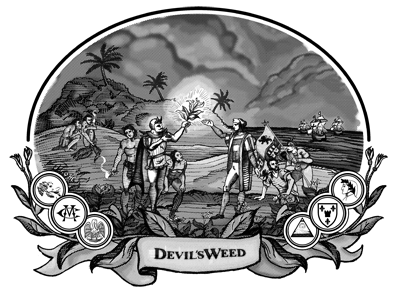This is the first of a new section to the blog I am very excited about. I thought it would be great to get to know better the creators of some of our favorite cigars.
Mr. Luis Molina of Molina Cigar Company who makes the Devil’s Weed Cigar graciously agreed to be my first guest. Mr. Molina, thanks for taking the time to answer some of my questions.
Zen: What got you into the cigar business?
Luis Molina: I smoked my first cigar when I was 16. I instantly fell in love with the handmade cigar and its history. After college I worked part-time in a cigar shop thinking it would be temporary, but after a month, I made a personal commitment to make a career in the cigar industry as I could not see myself doing anything else.
Zen: What is your favorite size in your line?
LM: I love the Queen Bess, our churchill.
Zen: What qualities do you look for in a cigar?
LM: For me, all cigars have to be clean. I like mild to very strong depending on my mood, but I do not want a cigar to leave a bitter and harsh finish.
Zen: What do you think Devil’s Weed and Molina Cigar Company can bring to the cigar industry?
LM: I simply want to spread my intense passion for this industry to all smokers and non-smokers alike. I love the history and the romance of the handmade cigar and that is why we chose the name Devil’s Weed. Using an ironic device, it is an homage to an historical reference regarding tobacco and it is a tribute to its history during the turbulent times and its glory days.
Zen: What is one cigar, other than your own, that you also like to smoke (if any)?
LM: I love smoking my fellow peers’ cigars so to pick one other than my own is difficult. There are so many that are incredible. I just smoked a La Aurora Cien Anos Torpedo that was aged over 2 years that was so rich yet clean. I was blown away actually and it was quite tasty. I love Cabaiguan, Liga Privada, Davidoff and VSG as well.
Zen: Do you have anything new up your sleeve for 2008-2009?
LM: We are adding a few more sizes to our Devil’s Weed Cabinet Selection (which includes a true “delicados extra” or lancero as it is commonly known now) and we are working on our next Devil’s Weed line which will be a more full-bodied cigar in the medium-to-strong category.
Thanks again to Mr. Molina. I look forward to more from Molina Cigar Company and Devil’s Weed!





















